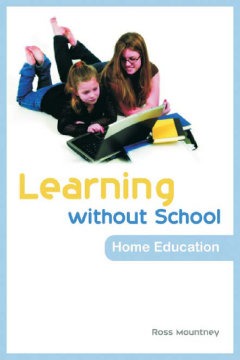
Additional Information
Book Details
Abstract
While some people look back on school as the 'best days of your life', for others the experience can be unpleasant and gruelling. Learning without School is a practical handbook for parents who want to educate their children at home but are unsure that they have the skills and know-how required to give their child the best education possible.
This book explains what home education is; the advantages and disadvantages of choosing this route; how to begin home educating; what you need to do and how to help your child adjust; and how home education affects children's social skills and friendships. It also covers technical aspects, such as the curriculum, core subjects, exams and timetables. Ross Mountney also considers children with 'learning difficulties' or 'special needs' and how to approach home education differently for this group of children.
Each chapter contains a summary of key points, useful websites, hints and tips and real-life case studies. This practical guide offers indispensible support for parents who are considering home education for their child, and includes a broad philosophy of education that will interest all parents and professionals involved in education and child welfare.
Ross Mountney is an ex-teacher and parent to two children who began school but have now been home educated for eight years. Ross is better known as the 'Home Educating Nobody', having written a diary for the charitable support network organisation, 'Education Otherwise' for several years.
The author writes in an engaging, easy to read style, with plenty of first-person stories about home-educated children; evidence is anecdotal rather than research-based... The author writes broadly about the range of personalised learning offered by the home educator; there are brief references to Jung and to Steiner-Waldorf but these are not developed. Useful websites and resources are given at the end of each chapter.
British Psychological Society, Debate
Table of Contents
| Section Title | Page | Action | Price |
|---|---|---|---|
| CAS Agrarian Change and Peasant Studies Series | |||
| Acknowledgements | |||
| Preface | |||
| Introduction: The Political Economy of Agrarian Change | |||
| 1 Production and Productivity | |||
| 2 Origins and Early Development of Capitalism | |||
| 3 Colonialism and Capitalism | |||
| 4 Farming and Agriculture, Local and Global | |||
| 5 Neoliberal Globalization and World Agriculture | |||
| 6 Capitalist Agriculture and Non-Capitalist Farmers? | |||
| 7 Class Formation in the Countryside | |||
| 8 Complexities of Class | |||
| Glossary | |||
| References |
